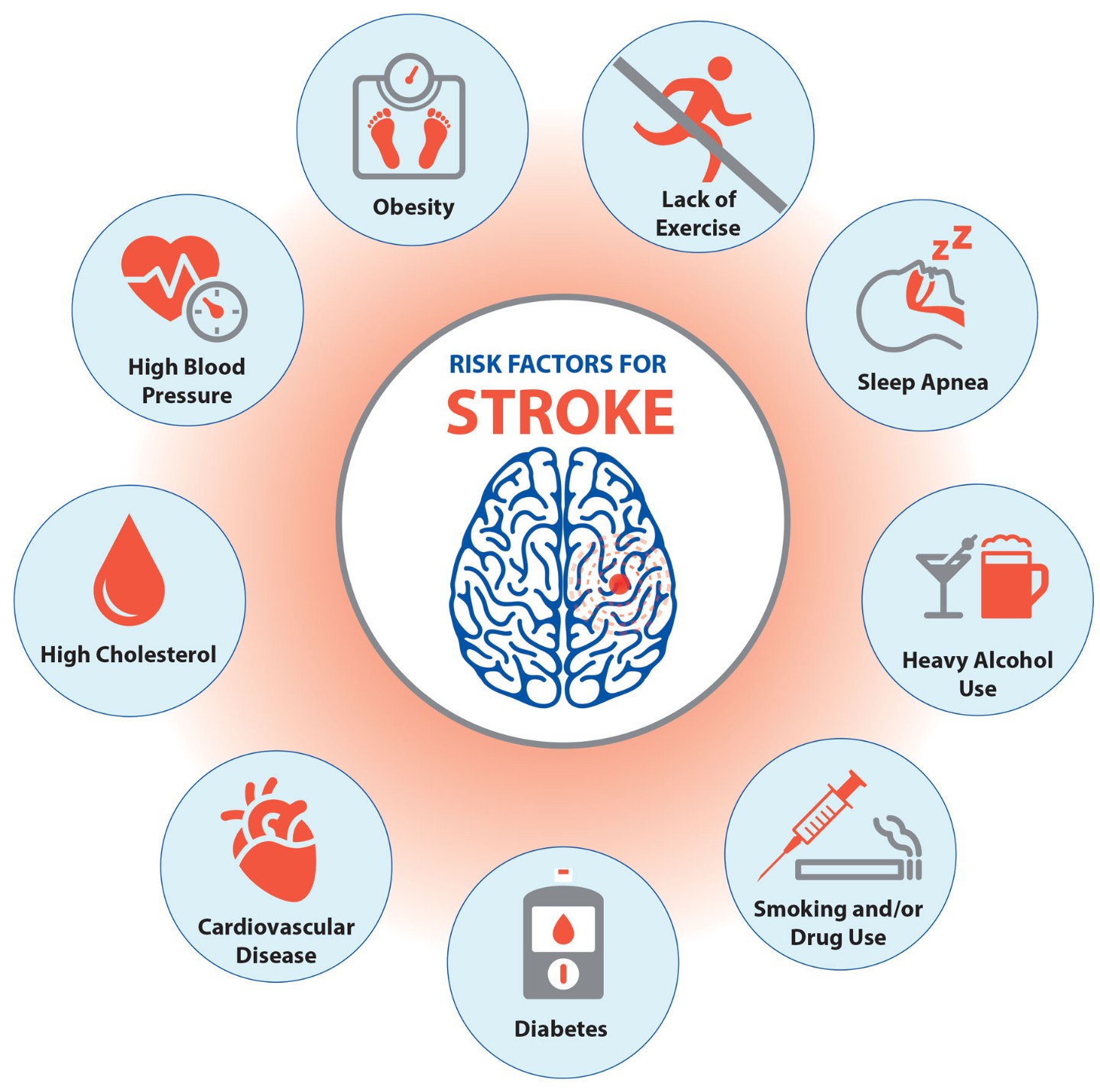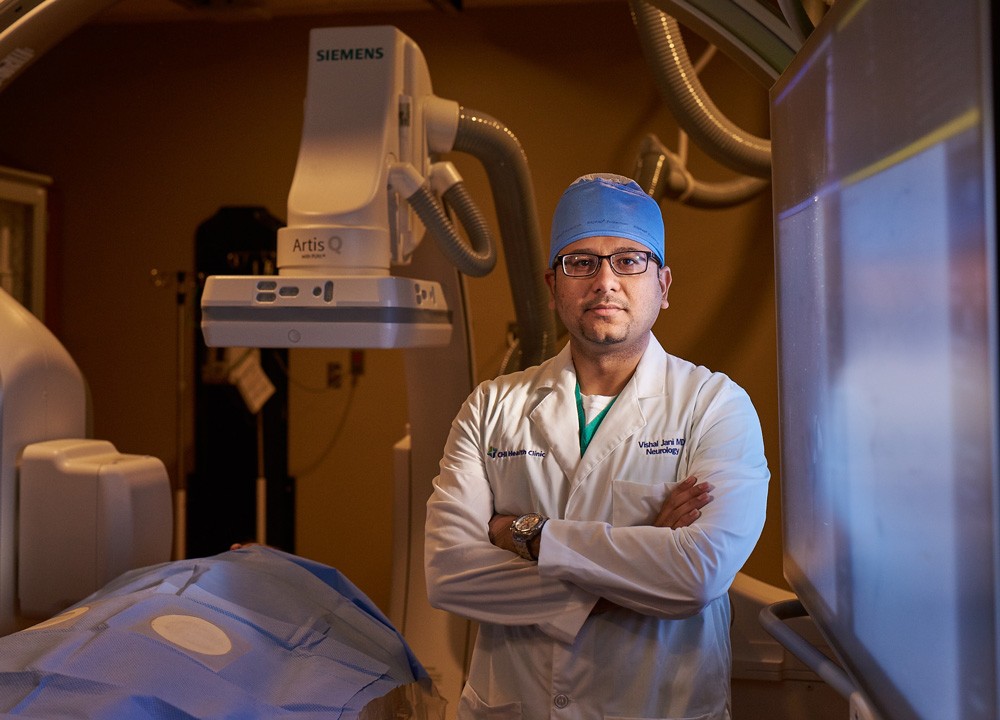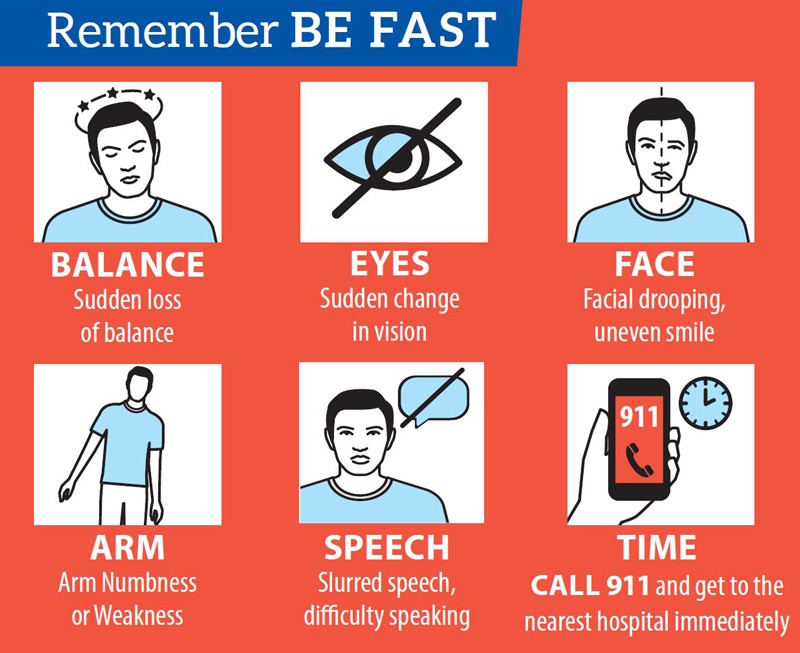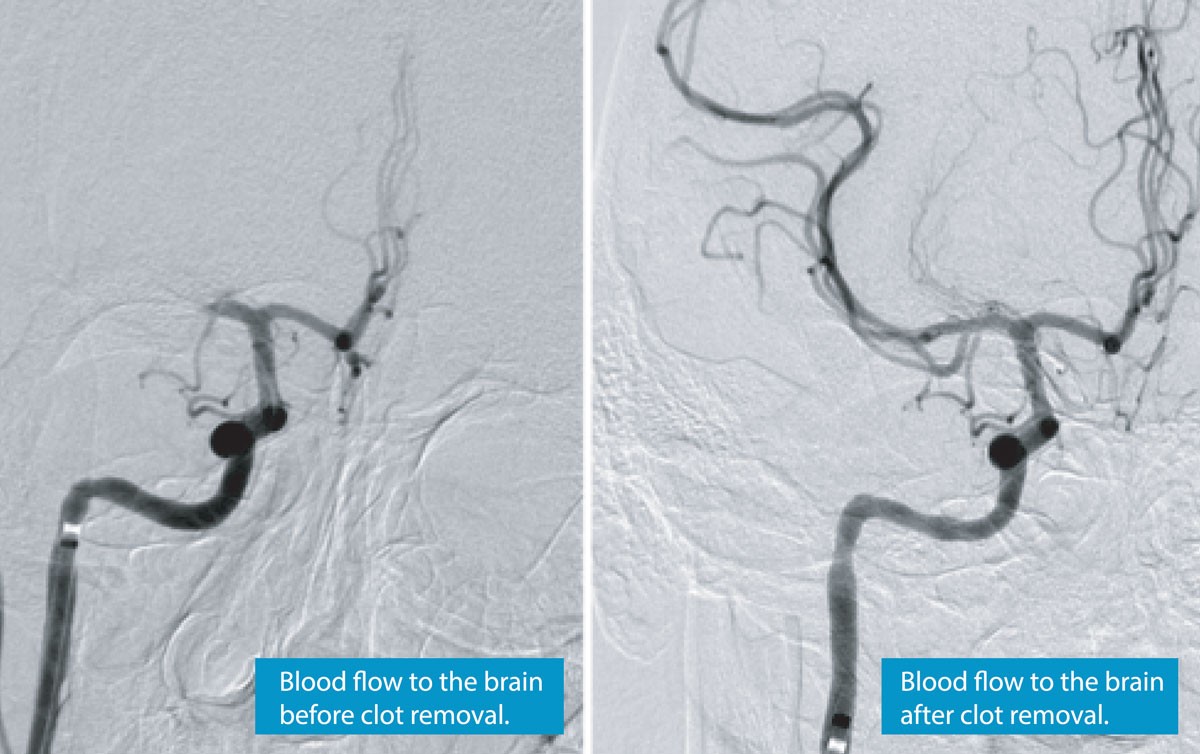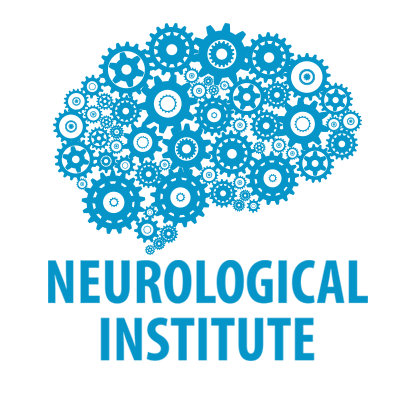When the brain is not getting the necessary blood flow, due to either a burst causing bleeding (hemorrhagic stroke) or a clot (ischemic stroke), brain cells start to die.
The faster the brain can get back the necessary blood flow, the better the outcome. Minutes matter – BE FAST!
Calling 911 is the best method to get you the urgent care you need. They will get you safely to the right hospital and be able to start your care quicker. Never drive yourself or a loved one to the Emergency Department. Always call 911!
A person may have one or several symptoms and those symptoms can range from mild to severe.
Recognize Stroke Symptoms:
- Sudden numbness or weakness of the leg
- Sudden confusion or trouble understanding
- Sudden trouble seeing in one or both eyes
- Sudden trouble walking, dizziness, loss of balance or coordination
- Sudden severe headache and no known cause
TIAs or “mini strokes” are warning strokes. Although these may seem mild and last only seconds or minutes, people who have these have a significantly higher risk of having additional strokes.
Research and technology have taken us a long way in stroke care, especially in the last few years. However, some treatments are limited based on the length of time from onset (last time known well or normal). Alteplase, a clot busting medication, may be used for qualifying patients if they present in a timely fashion. Mechanical Thrombectomy, a procedure used to physically remove a clot from the brain, is another option that patients may qualify for. Remember though, time is brain!
At CHI Health, we have developed streamlined processes to be as efficient as possible upon the patient’s arrival. From pre-notification from the transporting EMS to Stroke Stops in the Emergency Department that help expedite getting patient to imaging quickly we, strive to not just meet but exceed all time goals for stroke care. Our outcomes have been proven through Joint Commission and have allowed us to earn our numerous Stroke Certifications.
